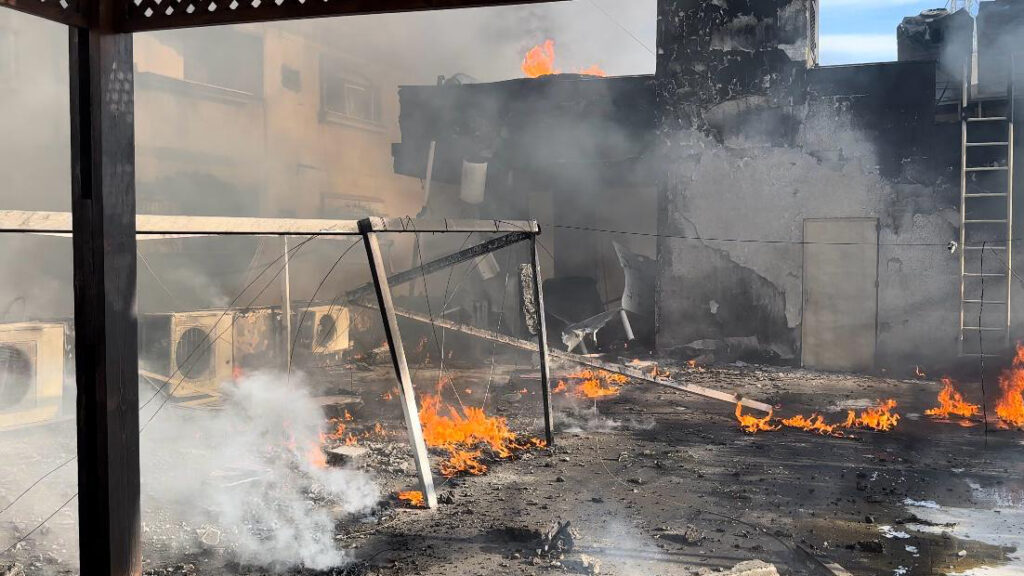Franciscans International has been monitoring negotiations at the UN Security Council toward a resolution calling for a cessation of hostilities in Gaza and is deeply concerned that a vote has been repeatedly postponed while the proposed text has been significantly weakened. Considering the dire and deteriorating situation in Gaza, there can be no more delays*. The 13 December vote by the General Assembly calling for a ceasefire has already made it clear that such a resolution would enjoy overwhelming international support.
We reiterate our calls for an immediate ceasefire, unrestricted access to humanitarian aid, the release of all innocent civilians held captive, and an independent investigation into alleged atrocity crimes with a view of holding perpetrators accountable.
While the resolution is negotiated by the members of the Security Council, we continued to witness the devastating events throughout the Holy Land and hear the repeated warnings by the United Nations and civil society about the currently “apocalyptic” humanitarian situation and the ongoing human rights violations in Gaza – described by independent UN experts in November as a “genocide in the making”.
On 16 December, we also received the news that two Palestinian women – a mother and daughter – were killed by the Israeli Defense Force while sheltering inside the Holy Family Parish in Gaza. Nahida Khalil Anton was shot by snipers. While her daughter Samar tried to help her reach safety, she was shot as well.
Earlier in the day, the compound was reportedly fired on by a tank, resulting in a fire and the destruction of a generator. The Latin Patriarch of Jerusalem released a statement warning that there are currently 54 persons with disabilities in the compound, some of whom are now unable to use the respirators that they need to survive. We note that Palestinian medical facilities and cultural sites have been repeatedly targeted, in violation of international law.
Nahida and Samar are just two of the more than 21.000 people that have been killed in the Holy Land since 7 October 2023. We cannot forget that each number represents a human being with families, friends, hopes, and dreams. The overwhelming percentage of those killed are civilian casualties, among them at least 135 UN staff and 68 journalists.
Meanwhile, with over 70 percent of houses in Gaza damaged and the Word Food Program warning that half of all Gazans are starving, those seeking refuge from the violence – including the over 1.9 million displaced – continue to be targeted while being deprived of all necessities, including food, water, shelter, and medical care.
“Hell is visible in the pictures of the dead and injured, of the destruction of homes, churches and mosques, hospitals, schools. We hear it with the emergency warning sirens on the background. We sense it in the heavy air that smells of death and suffering. The innocent victims of this war do not deserve the hell on earth they are living.”
Br. Ibrahim Faltas OFM, Vicar of the Custody of the Holy Land, on the situation in Gaza
In short, we are witnessing a human rights and humanitarian catastrophe and an international community that has been unable to act decisively or provide accountability for decades-long violations of international law. As noted by the UNRWA Commissioner-General, this is “a make-or-break moment for all of us and for our shared humanity.”
Inside the UN Headquarters in New York, there is a plaque bearing a quote from Dag Hammarskjöld that reminds the reader that “the United Nations was not created in order to bring us to heaven, but in order to save us from hell.” In Gaza, the international community is falling far short of this most basic task.
Photo from the Holy Family Parish shared by the Latin Patriarchate of Jerusalem
*After publication, the UN Security finally passed a resolution calling for an “immediate, safe and unhindered delivery of humanitarian assistance at scale directly to the Palestinian civilian population throughout the Gaza Strip”. Franciscans International remains concerned that, given the dire situation in Gaza, this decision fails to meet the gravity of the moment and to explicitly call for a permanent cessation of hostilities.

